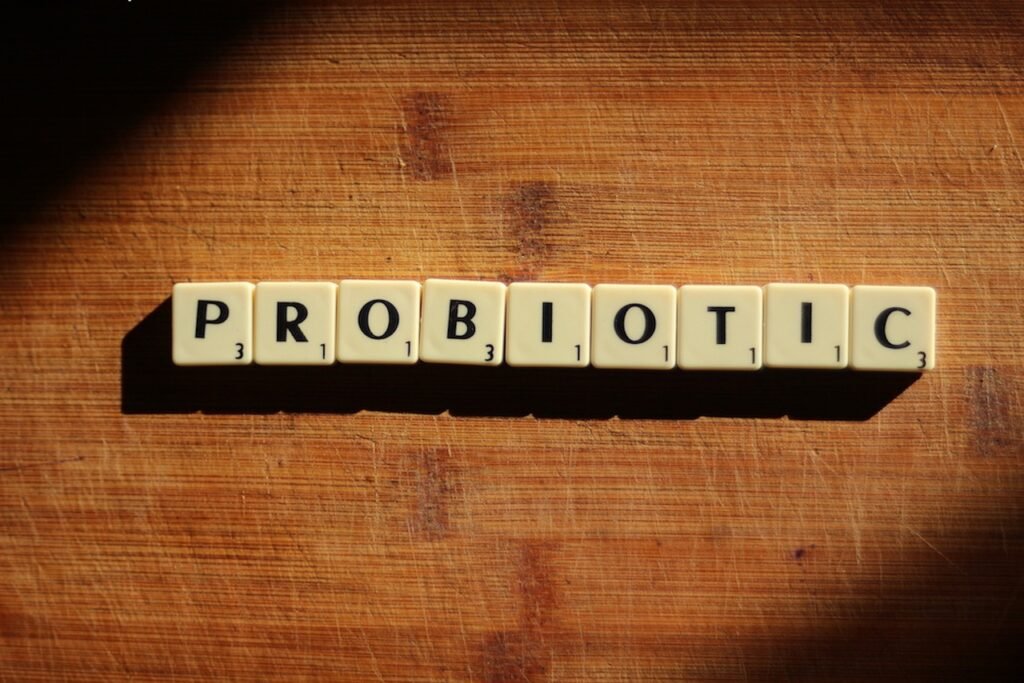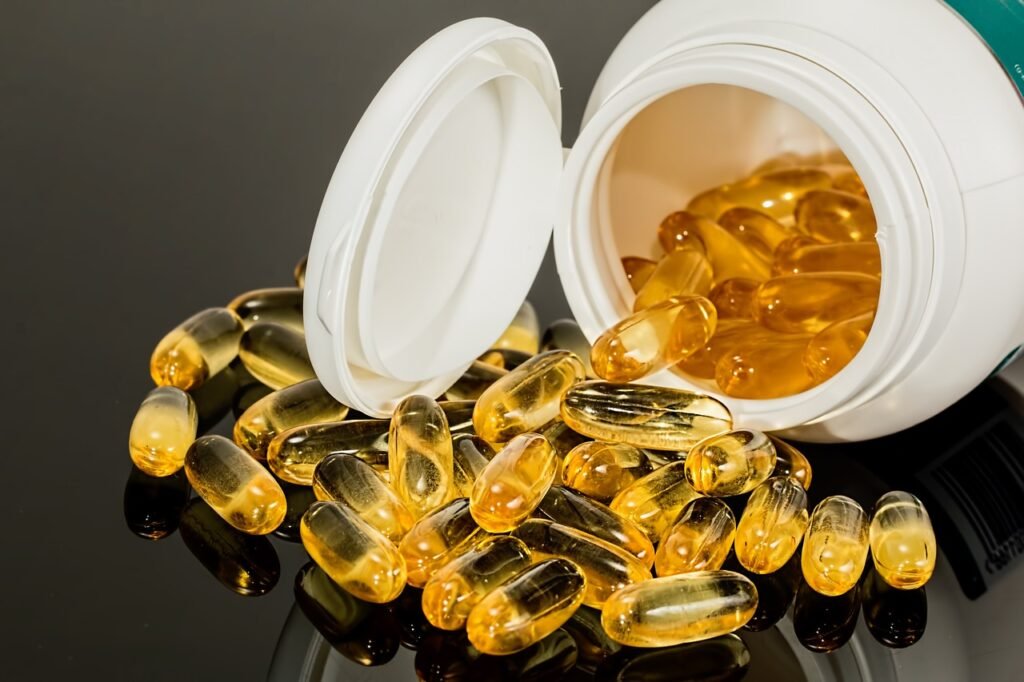
Intro
In recent years, there has been a significant rise in awareness about gut health and its impact on overall well-being. As part of this trend, the debate of Kombucha vs. Probiotics has gained traction among health enthusiasts. While both are celebrated for their potential benefits, understanding their differences is key to making an informed decision about which might be best for you.
Understanding Kombucha and Its Origins

Kombucha is a fascinating beverage with a rich history that dates back to ancient China, where it was highly esteemed for its purported detoxifying and energizing properties.
This effervescent drink is crafted through the fermentation of sweetened tea using a symbiotic culture of bacteria and yeast, commonly known as SCOBY.
This unique fermentation process imbues Kombucha with a tangy flavor profile and a slight fizz, making it a delightful and refreshing drink.
The appeal of Kombucha extends beyond its taste.
The fermentation process results in the production of various organic acids, vitamins, and live probiotics, which contribute to its reputed health benefits.
Notably, the presence of these organic acids and probiotics can aid in digestion and support gut health.
In terms of preparation, Kombucha requires a balance of time and care.
The sweetened tea is mixed with the SCOBY and allowed to ferment for a period ranging from one to three weeks, depending on the desired flavor and strength.
The SCOBY feeds on the sugar in the tea, producing alcohol and acetic acid, which gives the beverage its characteristic tang and slight effervescence.
What sets Kombucha apart is its dynamic flavor, which can be influenced by the type of tea used and the length of fermentation.
Green tea tends to produce a lighter, more delicate flavor, while black tea results in a robust, richer brew.
Additionally, many enthusiasts experiment with secondary fermentation, adding fruits, herbs, or spices to create a variety of flavors.
Kombucha’s blend of historical significance, unique preparation, and potential health benefits makes it a beverage that captures the interest and taste buds of those looking to enhance their wellness journey in an innovative and enjoyable way.
The Science Behind Probiotics and Their Functions

Probiotics are a remarkable discovery in the realm of gut health, often described as the beneficial bacteria our digestive systems need.
These live microorganisms, when ingested in sufficient quantities, have the ability to support a balanced gut microbiome, which is crucial for overall health.
Found naturally in foods like yogurt, kimchi, and sauerkraut, as well as in dietary supplements, probiotics serve various roles in maintaining our body’s ecosystem.
At the core of probiotics’ functionality is their ability to enhance the gut flora, which in turn aids in digestion and nutrient absorption.
By populating the gut with healthy bacteria, probiotics can outcompete harmful pathogens, reducing the risk of infections and digestive issues.
Specific strains, such as Lactobacillus and Bifidobacterium, have been studied extensively for their beneficial properties.
Lactobacillus, for example, is known for producing lactic acid, which inhibits harmful bacteria and boosts the digestive process.
Meanwhile, Bifidobacterium assists in breaking down complex carbohydrates, ensuring efficient nutrient utilization.
Moreover, probiotics play a vital role in modulating the immune system.
By interacting with the gut-associated lymphoid tissue (GALT), probiotics help enhance immune responses, thereby providing a line of defense against various illnesses.
This immune modulation is particularly important, as a significant portion of the body’s immune cells reside in the gut.
The gut-brain axis is another fascinating area where probiotics exert their influence.
Emerging research suggests that these microorganisms can impact mental health by producing neurotransmitters like serotonin, often dubbed the “happy hormone.”
Thus, probiotics may offer potential benefits in alleviating symptoms of anxiety and depression, underscoring their multifaceted role in human health.
Comparing Nutritional Profiles of Kombucha and Probiotics

Kombucha and probiotics each bring unique nutritional offerings to the table, making them both valuable in their own right.
Kombucha’s composition is influenced by its fermentation process, which enriches it with organic acids, B-vitamins, and antioxidants.
These elements collectively contribute to its detoxifying and energizing properties.
The live bacteria introduced during fermentation add another layer of benefit, supporting gut health and aiding in digestion.
On the other hand, probiotics, available in foods like yogurt and sauerkraut or as dietary supplements, are essentially concentrated sources of beneficial bacteria.
These supplements are specifically designed to deliver targeted strains, such as Lactobacillus and Bifidobacterium, known for their health-promoting properties.
These strains help maintain a balanced gut microbiome, enhance nutrient absorption, and bolster the immune system.
The nutritional profile of Kombucha can vary based on factors like the type of tea used and the duration of fermentation.
For instance, green tea may offer a lighter brew with additional antioxidants, while black tea can yield a richer, more robust flavor.
This dynamic range allows for a tailored approach to consumption, appealing to different palates and health needs.
Probiotics, however, offer a more consistent and concentrated dosage of beneficial bacteria.
These microorganisms are meticulously selected and combined in specific quantities to address particular health concerns, such as digestive issues or immune support.
This targeted approach can make probiotics a more reliable option for those seeking specific health benefits.
In essence, while Kombucha provides a flavorful and refreshing way to boost gut health, probiotics offer a more direct and potent means of supporting the digestive system.
Both have their merits, and their nutritional profiles reflect their unique methods of promoting well-being.
Health Benefits of Kombucha

Kombucha has been associated with a multitude of health benefits.
Studies suggest that it possesses anti-inflammatory, antioxidant, anti-bacterial, anti-diabetic, and anti-carcinogenic properties.
Additionally, it has been shown to potentially reduce cholesterol levels and improve liver metabolism, immune function, and gastrointestinal health.
Kombucha also acts as an effective antibacterial agent against various pathogens, such as Staphylococcus aureus and Escherichia coli.
Health Benefits of Probiotics

Probiotics boast a plethora of health benefits that have cemented their place in the wellness arena.
Their most celebrated advantage is the enhancement of digestive health, where these beneficial bacteria foster a balanced gut microbiome, thus optimizing nutrient absorption and alleviating common digestive ailments like bloating,
constipation, and diarrhea. Beyond digestion, probiotics are pivotal in fortifying the immune system.
By interacting with the gut’s lymphoid tissue, they bolster the body’s defenses against infections, including respiratory illnesses such as the common cold.
Mental well-being is another frontier where probiotics have shown promising results.
Emerging studies highlight the influence of gut bacteria on the gut-brain axis, suggesting that probiotics can help manage symptoms of anxiety and depression.
This intriguing connection is often attributed to probiotics’ role in producing and regulating neurotransmitters like serotonin, which is crucial for mood regulation.
Probiotics also offer specific benefits tailored to individual health needs.
For instance, certain strains like Lactobacillus rhamnosus are known for their ability to prevent and treat gastrointestinal infections, while Bifidobacterium lactis is effective in reducing inflammation and boosting overall immunity.
These targeted actions make probiotics a versatile tool in promoting holistic health.
Moreover, probiotics extend their benefits to skin health.
A balanced gut flora can reduce the severity of skin conditions such as eczema and acne, as systemic inflammation is often linked to an imbalanced gut microbiome.
This connection underscores the systemic nature of probiotics’ benefits, impacting not just the gut, but the entire body.
Incorporating probiotics into your diet can be straightforward, whether through probiotic-rich foods like yogurt and sauerkraut or through dietary supplements tailored to specific health goals.
Their multifaceted benefits make them a cornerstone of a comprehensive wellness strategy.
The Fermentation Process of Kombucha

The fermentation process of Kombucha is a meticulous and fascinating journey that transforms sweetened tea into a beverage rich in potential health benefits.
Central to this transformation is the SCOBY (symbiotic culture of bacteria and yeast), which facilitates the fermentation by consuming the sugars in the tea.
This process can take anywhere from one to three weeks, during which time a range of organic acids, enzymes, and vitamins are produced.
A crucial aspect of Kombucha’s health-promoting properties is its antioxidant activity.
These antioxidants are essential in combating oxidative stress, a known contributor to various chronic diseases. Additionally, phenolic compounds, responsible for antioxidant properties, increase during fermentation, further enhancing the drink’s potential health benefits.
The fermentation process not only enriches Kombucha with beneficial compounds but also gives it its distinctive tangy flavor and effervescence.
The type of tea used can influence the final taste; for instance, green tea may produce a lighter and more delicate flavor, while black tea yields a robust, richer profile.
Some enthusiasts take the process a step further with secondary fermentation, adding fruits, herbs, or spices to create a variety of bespoke flavors.
Control and precision are paramount during the fermentation process to prevent contamination.
Ensuring a clean environment and using quality ingredients are essential steps to maintain the integrity and safety of the final product.
This careful balance of science and art makes Kombucha a captivating addition to the world of fermented beverages.
Different Forms of Probiotic Supplements Available

Probiotic supplements come in an array of forms to suit various preferences and health needs.
Capsules and tablets are among the most common, offering a convenient and precise way to consume probiotics.
These forms typically contain a measured dose of specific bacterial strains, making them ideal for targeted health concerns such as digestive issues or immune support.
Powders offer a versatile alternative, allowing you to mix probiotics into smoothies, water, or other beverages.
This form is particularly appealing for those who may have difficulty swallowing pills or prefer a more flexible intake method.
Additionally, powdered probiotics can often be added to food, making them a convenient option for integrating beneficial bacteria into your daily diet.
Liquid formulations are another popular choice, especially for those seeking a quick and easy way to incorporate probiotics into their routine.
These liquids can be taken on their own or mixed into drinks, providing a seamless addition to your morning or evening regimen.
Liquid probiotics may also offer faster absorption, as they don’t require the body to break down a capsule or tablet.
For those who prefer a more gradual release of probiotics, enteric-coated capsules are designed to withstand stomach acid and release their contents directly into the intestines.
This targeted delivery ensures that the beneficial bacteria reach the gut where they can be most effective.
Chewable probiotics and gummies provide a child-friendly option, making it easier for younger family members to enjoy the benefits of probiotics without the challenge of swallowing pills.
These tasty alternatives often come in various flavors, appealing to both children and adults alike.
With such a diverse range of probiotic supplements available, there’s a form to meet virtually any preference or lifestyle, ensuring that everyone can find a suitable option to support their gut health.
Potential Side Effects and Risks of Kombucha

Kombucha, despite its many benefits, does come with potential side effects and risks that consumers should be aware of.
One of the primary concerns is its acidity, which can cause digestive discomfort for some individuals.
Overconsumption may lead to symptoms such as bloating, gas, or even nausea.
Those with sensitive stomachs or pre-existing gastrointestinal conditions might find these effects more pronounced.
Another critical aspect to consider is the alcohol content in Kombucha.
Although typically low, the alcohol produced during fermentation can vary, and individuals sensitive to alcohol or those avoiding it for health or personal reasons should exercise caution.
Home-brewed Kombucha carries additional risks due to the potential for contamination.
The fermentation process requires a sterile environment to prevent harmful bacteria and molds from proliferating.
Contaminated Kombucha can lead to food poisoning or infections, which could be severe.
Therefore, it’s essential for home brewers to adhere to stringent hygiene practices and use quality ingredients.
Additionally, Kombucha’s sugar content is a consideration, especially for those managing conditions like diabetes.
While the fermentation process reduces the sugar level, some residual sugar remains, which could impact blood sugar control.
For those with weakened immune systems or certain chronic illnesses, it is advisable to consult with a healthcare provider before incorporating Kombucha into their diet.
While the probiotics in Kombucha can support gut health, the overall impact on individuals with compromised health needs to be carefully assessed.
Lastly, the acidity of Kombucha can affect dental health.
Regular consumption might contribute to enamel erosion, leading to increased sensitivity and other dental issues.
Drinking through a straw and rinsing the mouth with water afterward can help mitigate this risk.
Potential Side Effects and Risks of Probiotics

Probiotics are generally well-regarded for their health benefits, but it’s important to be mindful of potential side effects and risks.
As with any supplement, individual responses can vary.
Some people might experience mild digestive disturbances, such as gas, bloating, or an upset stomach, particularly when they first start taking probiotics.
These symptoms usually subside as the body adjusts to the new influx of beneficial bacteria.
For those with compromised immune systems, severe illnesses, or underlying health conditions, it’s crucial to consult a healthcare provider before starting probiotic supplementation.
While probiotics are generally safe, the introduction of live bacteria into an already vulnerable system can sometimes lead to infections or other complications.
This is particularly important for individuals undergoing treatments that weaken the immune system, such as chemotherapy.
Allergic reactions are another consideration, albeit rare. Some probiotic supplements may contain allergens like dairy, soy, or gluten.
Always check the labels and ingredient lists to ensure that the product aligns with your dietary restrictions or allergies.
Another point of caution is the quality and purity of probiotic supplements.
Not all products on the market are created equal, and some may contain strains that are not listed on the label, or in quantities that are ineffective.
Choosing reputable brands with transparent labeling and third-party testing can mitigate this risk.
Lastly, while probiotics can support gut health, they are not a cure-all.
Over-reliance on supplements without addressing other aspects of a balanced diet and lifestyle may not yield the desired health outcomes.
As always, a holistic approach to wellness, incorporating a variety of healthy foods and habits, is recommended for optimal results.
Making an Informed Decision: Kombucha or Probiotics?

Navigating the choice between Kombucha and probiotics requires a nuanced understanding of their distinct advantages.
Kombucha, with its vibrant flavor and naturally occurring probiotics, offers a delightful way to enhance your gut health while enjoying a refreshing drink.
Its fermentation process enriches it with beneficial compounds, making it a multifaceted addition to your diet.
On the other hand, probiotic supplements deliver concentrated and targeted strains of beneficial bacteria, ideal for addressing specific health concerns such as digestive issues or immune support.
Their versatility in forms—capsules, powders, and liquids—ensures there’s an option to suit every preference.
Ultimately, both Kombucha and probiotics can complement each other in a holistic wellness routine, providing a synergistic approach to maintaining a balanced gut microbiome.
